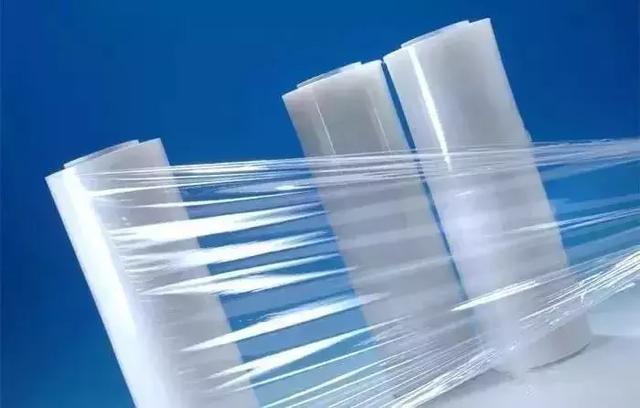Talc powder is often used to fill polypropylene, and talc has a sheet-like structural feature of a flake configuration, so that a finer talc powder can be used as a reinforcing filler for polypropylene. In the modified system of polypropylene, the addition of ultrafine talcum powder can not only significantly improve the rigidity, surface hardness, heat creep resistance, electrical insulation, dimensional stability of polypropylene products, but also improve the impact strength of polypropylene. . Adding a small amount of talc powder to polypropylene can also act as a nucleating agent, improve the crystallinity of the polypropylene, thereby improving the mechanical properties of the polypropylene, and improving the crystallinity and refining the crystal grains. The transparency of polypropylene. Polypropylene composites filled with 20% and 40% ultrafine talc powder can significantly improve the rigidity of polypropylene and the creep resistance at high temperatures, both at room temperature and high temperature. In the automotive industry, polypropylene-added talc is mainly used in bumpers and instrument panels of automobiles, as well as in fan covers, heater covers, ducts, battery heat shields, fluid pump parts, etc.; in the aircraft industry, In the refrigerator door gasket, heater and vacuum pump cover, washing machine agitator; in the electrical industry, for injection molding various instrument housings and electrical components, in the home appliance industry, for refrigerator drawers, washing machine drums and other injection molded parts . Talc is natural magnesium silicate, its unique micro-scale structure, with certain water resistance and high chemical inertness, so it has good chemical resistance and slidability. It can be used as an engineering plastic with polyethylene. It has good chemical resistance and fluidity and can compete with ABS, nylon and polycarbonate. Filling polyethylene with it can improve the following properties: toughness, flexural modulus and twist modulus; increase flexural strength; reduce creep tendency at normal temperature and high temperature; increase thermal transition temperature and dimensional stability; improve deformation and Warpage, but also has a low coefficient of thermal expansion; improve thermal conductivity; improve the surface hardness and smoothness of molded parts; improve the mechanical strength of polyethylene. Adding different proportions of talc powder will have different effects on the physical properties of polyethylene materials, and the addition ratio is optimal at 10%-15%. For polyethylene blown film, the superfine talc powder masterbatch is better than other fillers, easy to form and has good processability. Moreover, the film can reduce the oxygen transmission rate by 80%, and is particularly suitable for packaging oily foods, such as peanuts, broad beans, etc., and does not leave oil for a long time, and does not deteriorate: the film can reduce the water vapor transmission rate by 70%. It has good moisture resistance and is suitable for underground geotextile moisture-proof cloth. It is also suitable for packaged food. ABS resin is an amorphous polymer with excellent molding processability such as polystyrene; it has good impact strength, good low temperature resistance, high tensile strength and good creep resistance. In order to improve the existing performance of ABS, research on ABS modification has been widely carried out. For example, ABS and PVC blended automobile instrument panel blister sheet, ABS and PVC blended leather bag hood mask, not only high strength, high toughness and can maintain the durability of the surface pattern. This blended material is filled with ultra-fine calcium carbonate or ultrafine talc powder, which can significantly improve the notched impact strength and tear strength of the blended materials, such as: adding ultrafine talc powder or calcium carbonate 5%-15 %, the notched impact strength can be increased by 2-4 times. Since ABS is an amorphous polymer, it has a function of accommodating more filler. The addition of ultrafine talc powder can significantly improve the performance of ABS and reduce costs. Therefore, it is used for injection molding various housings of various instruments, televisions, tape recorders, mobile phones, etc., of course, in other fields such as textile equipment, electrical parts, automobile parts, aircraft parts and the like. Unmodified general-purpose polystyrene is an amorphous polymer which is hard and brittle, but it has good electrical properties, aging resistance and high dimensional stability. The disadvantage is high brittleness and sensitivity to environmental stress cracking. The addition of ultrafine talc powder can improve the impact toughness, adjust the rheology, significantly increase the modulus of the distortion, and improve the tensile yield strength. For example, adding 40% ultrafine talcum powder or talc masterbatch, the modulus of distortion increases from 23800kg/cm2 to 58800kg/cm2, and the tensile strength increases from 336kg/cm2 to 385kg/cm2. For nylon (polyamide), industrial attention is paid to the toughness and wear resistance of this plastic. Nylon is generally hard, similar to keratin, with good abrasion resistance and high dimensional stability. These properties can be further enhanced by fillers or reinforcing agents. The hardness, stiffness, wear resistance and heat distortion temperature of PA66 are the highest in nylon; PA6 is known for its high toughness; PA610 has low water absorption and high dimensional stability; PA11 impact strength is in nylon. The highest. Among the various fillers, the layered structure of talc can improve the original properties of nylon and improve wear resistance. Compared with metal, the unfilled modified nylon has low elastic modulus, low tensile and creep strength, and a significant dependence on mechanical properties and temperature. It contains a water-absorbing amino group on the molecule, and has high water absorption. The product is easy to absorb when used. Expansion deformation, rapid cooling and incomplete crystallization during processing, and crystallization during use, which causes deformation or even cracking of the product. The above disadvantages of nylon can be greatly improved by adding ultrafine talc powder. The talc powder has the function of nucleating agent. After addition, it can increase the crystallization rate of nylon and increase the crystallinity, so it can especially improve the toughness and mechanical of nylon. Strength, hardness, thermal stability, dimensional stability, improved surface quality and deformation behavior of the product also have a good influence on moisture absorption, electrical properties and chemical properties. Filling polyvinyl chloride with ordinary powder has been very common, such as the manufacture of hard PVC pipes, the amount of calcium carbonate can be up to 40%, but the tensile strength and impact strength of PVC are reduced; When the talc powder of 5 micrometers or 2000 mesh is added to the volume fraction of 40%-45%, the yield strength of the material can be found to be even higher than the original breaking strength, and the polyvinyl chloride system is obviously enhanced. For the impact strength, the addition of the ultrafine talc powder, the unnotched impact strength is substantially not reduced within 15% by weight, the notched impact strength is lowered, and the disturbing modulus can be significantly increased. The ultrafine powder has a very significant reinforcing effect on the polyvinyl chloride system to which the toughening agent is added, such as PVC/CPE and PVC/ABS systems. Makeup Mirror With Lights,Mirror With Led Lights,Light For The Cosmetic Mirror,Mirror With Bathroom Led Light NINGBO EASTKEY ILLUMINATE APPLIANCE CO.,LTD , https://www.eastkeylighting.com Application in polypropylene resin (PP)

Application in polyethylene resin (PE)

Application in ABS resin

Application in polystyrene resin (PS)
Application in nylon resin (PA)
Application in polyvinyl chloride resin (PVC)
Talc powder is more useful in plastic modification!